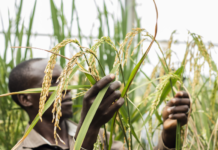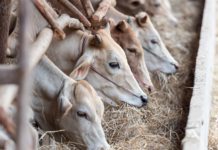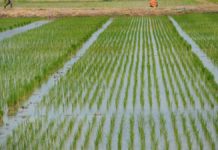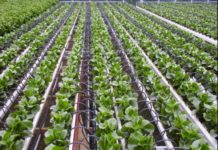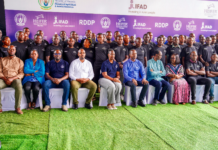World leaders gather in New York for the United Nations General Assembly (UNGA), to rebuild trust, reignite solidarity among nations and rescue the UN’s 2030 Agenda for Sustainable Development. This includes rescuing Sustainable Development Goals for Zero Hunger and No Poverty. Alvaro Lario, President of the UN’s International Fund for Agricultural Development (IFAD), warns of the dire and irreversible effects that the climate crisis will have on hunger and poverty if sound adaptation measures are not taken quickly.
“The climate crisis hinders our efforts to eradicate hunger and poverty. The growing global population is dependent on a diet that places significant pressure on increasingly scarce land and water resources. This exacerbates inequalities and social unrest,” said the President of the only UN development agency that focuses exclusively on rural areas.
“It is imperative to invest in building resilience and in adaptation to climate change. This cannot wait. Investing in small-scale food producers is also vital to ensure a food secure future. And sustainable, biodiverse food production is essential to achieve sustainable development and climate goals. This also means investing in the livelihoods of the most vulnerable men and women around the world,” he added.
Speaking of recent natural disasters like the earthquake in Morocco and extreme weather events like massive flooding in Libya last week, Lario emphasized that developing countries and the world’s poorest and most vulnerable women and men are on the frontlines of climate change and development gains can be quickly lost when shocks occur.
At the UNGA, Lario marks his first year in office and IFAD continues to build momentum as a UN agency and international financial institution that is fit-for-purpose. The recent declaration issued by G20 leader’s gathered in New Delhi emphasized IFAD’s role in the “fight against food insecurity,” and encouraged member states to replenish the UN Fund’s resources at the end of the year, when its 178 member states will pledge their donations and enable the fund to bring to scale investments that will transform the lives of millions of vulnerable people in rural areas.
Emmanuel Macron, President of France, continued to champion IFAD’s campaign at the recent G20 Summit in New Delhi, India. “We need [a successful replenishment] because IFAD works to improve agriculture and food production systems in many countries, particularly those affected by the ripple effects of war,” said Macron.
Janet Yellen, United States Secretary of the Treasury, also highlighted IFAD’s role at the G20 Summit: “We hope to move forward efforts such as supporting the global agriculture and food security program and working towards a successful replenishment of IFAD.”
Under current trends, 575 million people will still be living in extreme poverty in 2030. It is estimated that there will be as many people suffering from hunger by 2030 as in 2015 (600 million people).
“Hunger remains a political issue, mostly caused by poverty, inequality, conflict, corruption and overall lack of access to food and resources. In a world of plenty, which produces enough food to feed everyone, how can there be hundreds of millions going hungry?” said the President of IFAD.




